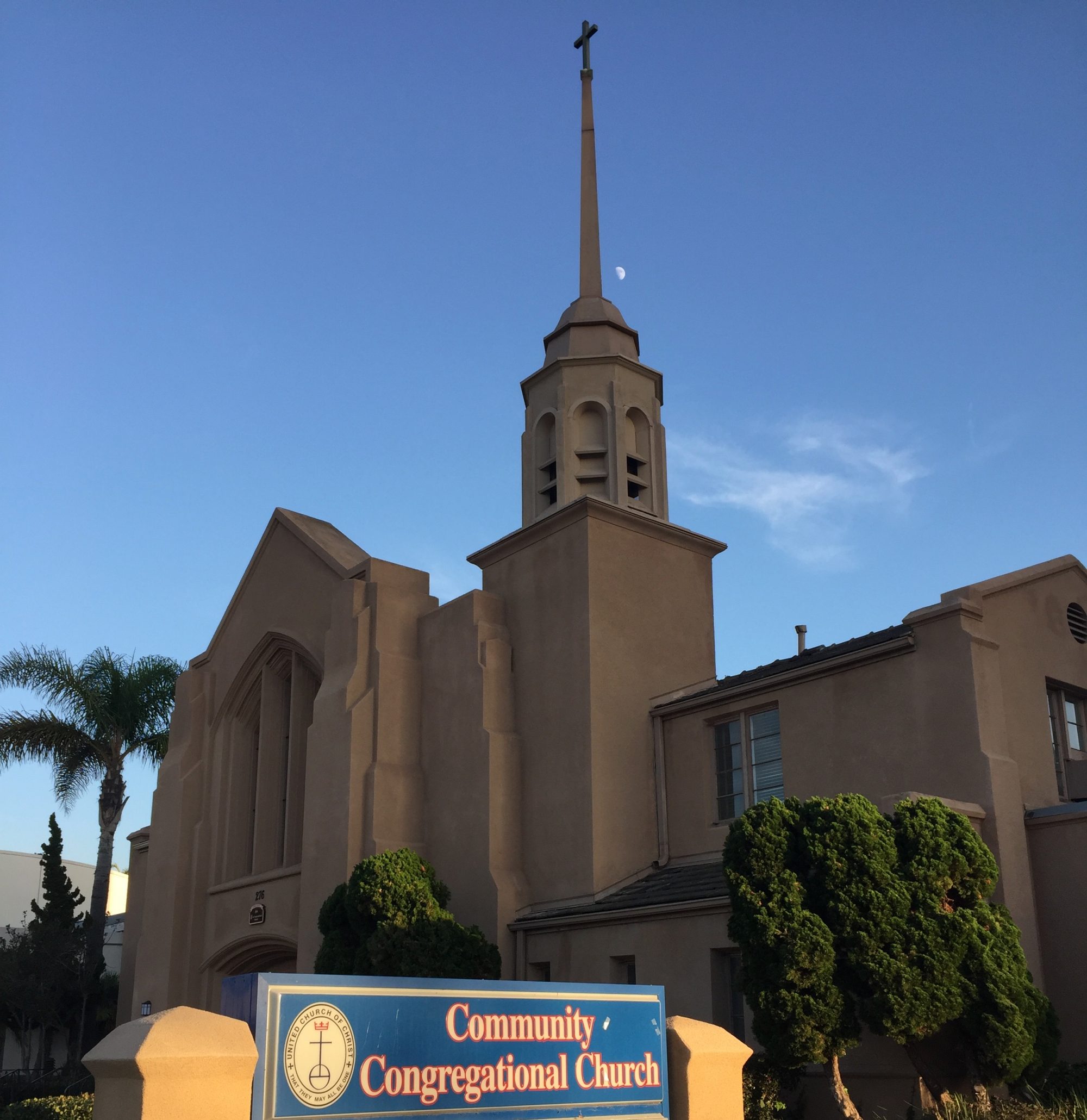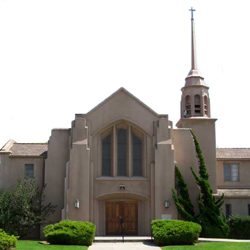Palm Sunday Sermon
Rev. Elizabeth Aguilar
Community Congregational Church of Chula Vista
Scripture Text Luke 19:2-40
You might remember that I am originally from the “windy City” of Chicago. One of those many things I miss about my home city are the big parades it used to have very often. I miss the bigness of them. For instance, I remember one of the last parades I attended was when the Chicago Bears won the Super Bowl. I think it was probably one of the BIGGEST parades that Chicago had seen at that time. That one was pretty spectacular. There was SO much confetti and ticket tap that you could hardly see the players on the cars, floats and buses. The whole city was in fiesta mode and the people of Chicago couldn’t do enough to show their excitement for that Super Bowl win!
So, why am I thinking of parades? Well, because it’s Palm Sunday and today we celebrate that day in history when the people of Jerusalem “threw a parade” of sorts for Jesus. It must have been quite an event since all four Gospel writers give accounts of it and it is the only parade documented for us in scripture. Of course, on that first Palm Sunday we don’t see any confetti or ticket tape thrown here and there. No, instead we see coats being thrown on the ground in honor of Jesus’ presence. And, instead of a parade float or a big double-decker bus, there is only a lowly donkey. Then, instead of the crowd cheering on a popular athlete, we see Jesus and his disciples.
Of course, everything we know of a parade to be like today isn’t anything like that first parade. Instead, we see very simple images in the Palm Sunday parade, don’t we? It is joyous yes, but very simple. The joy is seen and heard in the voices of the people and their gestures of placing their coats on the ground. In the other Gospel accounts, we see the joy also in the waving of the branches of palm leaves. Interestingly, in Luke’s account of this story we don’t see any palms. So, the image is even simpler in Luke.
Yet, we know that regardless of the simplicity of this celebration, what this parade represents is anything BUT simplicity. No, this parade isn’t anything like any kind of parade the people would have been accustomed to even back then. For instance, there is no chariot for a king to have used. We see no servants or an army around him. There is no long procession. There is just Jesus and his disciples, plus the other people who were spectators and then the Pharisees as well.
So, what are we meant to make of this particular parade? And, what are we to make of Jesus’ instructions before His grand entrance, which were full of detail and predication? Then, what are we meant to make of the disciples’ obedience, and the ridicule of the Pharisees?
The first thing we can notice is that Jesus had very particular instructions for the disciples on this day. These instructions show us that Jesus knew exactly what he wanted to do and what must happen. He does this according to the prophetic account of Zachariah (hundreds of years before) when, in chapter 9, verse 9, the prophet says the following. “Rejoice greatly, O daughter of Zion! Shout, daughter of Jerusalem! See, your king comes to you, righteous and having salvation, gentle and riding on a donkey.”
So firstly, Jesus decided to carry-out this prediction because of obedience. You see, He was obedient to what scripture had said about him hundreds of years before and therefore He was obedient to the way and will of God, His Father. Now, He could have skipped the parade all together. Or He could have not bothered to use a donkey and it’s symbolism of humility. He could have skipped ALL of HOLY WEEK for that matter! But, no Jesus enters Jerusalem- the city that he loved in this very simple, prophetic, way. Interestingly, by doing so He allowed the people (to show Him their love and honor) only to then show them their hatred and disapproval of Him a few days later. So, Jesus’ instructions to his disciples and his actions all spell out humility, obedience and bravery to us, don’t they?
Thirdly, Jesus decided to come in simplicity. He could have come into Jerusalem in grand fashion. Not with the tattered coats of strangers on the ground. Not riding a lowly donkey. Not with a group of unrecognized, unimportant, un-educated men whom he chose as His disciples.
And so we see that Jesus had made a decision and that decision wasn’t an easy one. You see, He chose the hard road. He chose the way of obedience, the way of humility and simplicity, and the way of the cross and all of it began on that first Palm Sunday.
I wonder though, what do His decisions tell us about our decisions? What does his attitude, actions, and decisions tell us of our own?
After all, if we claim to be Christians then surely, we must still desire to be like Christ, correct? Of course, it may be difficult to do so when the way of the world tells us that the “bigger and splashier” we do things, the better we are. That the more popularity and money you have, the better. The more important friends you surround yourself with, the better. We live in a culture of image after all!
I will never forget what I experienced about this issue of “image” when I first lived here California, for close to three years in the 1990’s. Of course, California is probably the most image- conscious area of the country. So the following might not surprise you. Yet, I remember it was here that I first heard of people who were called “image consultants.” I had never heard of such a job title before? What was an image consultant, I wondered?
Well the job meant that someone’s entire efforts centered on the need to make someone else look beautiful and seem important. Of course, today, we people don’t need image consultants because all we need are our camera phones! All we have to do is get the “right angle” and post it on facebook or Instagram…
But what about Jesus? Do you think He went into Jerusalem that Palm Sunday, riding on a donkey, letting people cry out to him, “blessed be the name of the Lord!” because he was most interested in his popularity or image? No, of course not.
His entrance into Jerusalem was instead, about carrying out a decision that He had made; a decision that would cost Him His life but would give us our life. So, back to my question. What do Jesus’ decisions of taking the humble way and the hard way tell us about our decisions?
What choice is it that you must make on behalf of your Christian faith today? Is God calling you to choose Him above something or someone else right now? Is there someone or something else that you have chosen over your faith?
What attitude is the Lord asking you to lay down and let go of in order to make room for a closer walk with Him? Is it an attitude of greatness or pride? Is it an attitude of un-forgiveness, that you’re being asked to lay down in order to make room for Jesus again in your heart or your home?
This Palm Sunday we are invited to examine the decisions that Jesus took on our behalf and then to ask ourselves if we are willing to make those same decisions.
You might be thinking that it was easy for Jesus to take the hard road, the lonelier road of obedience and humility but too difficult for us. Yet, we must remember that it wasn’t easy for him at all. Do you remember that in a very human and difficult moment, while it at the Garden of Gethsemane, Jesus asked His Father to take the cup of suffering away, if at all possible? So, no we can’t use that as an excuse.
Then, we might be thinking well if Jesus was able to do what he did then great, why can’t I just admire him? Because then we would just be like the spectators that day on the first Palm Sunday. We cannot just stand on the side lines and follow Jesus only when it’s easy or convenient, or popular, to do so. No, we must follow him, worship, obey him, and serve him in ALL circumstances.
The good news is that as we allow ourselves to walk w/ Him toward the cross, (to let go of all that keeps us away from Him and perpetuates our sin)- we can also walk with Him toward victory. For we must remember that all that we experience, all that we see, feel, or even suffer on earth because of our faith will not be in vain. For, we do not walk toward the cross on our own. Let us remember that while Jesus did walk the road of obedience and suffering. Jesus did not do so in vain. Therefore, we will not walk in vain when we chose to follow Him over and above all else. Are you ready to choose Him over and above all else; above all pride, all desires, all false gods of wealth and stature? May the Lord give us the grace, courage and conviction to do so. Amen.

